AB 506 Informational Guide
What Does AB 506 Do?
Assembly Bill 506 (AB 506) was approved by Governor Gavin Newsom in Sept. 2021 and took effect on January 1, 2022. AB 506 became law as Section 18975 within Chapter 2.9 Youth Service Organizations, which falls under Division 8 of the Business and Professions Code.
Under the existing CA law, any business providing services to minors is required to provide written notice regarding the businesses’ policies relating to obtaining background checks for its employees to the parent or guardian of the minors receiving those services. AB 506 adds further protections for minors by requiring Youth Service Organizations to do all the following:
1. Requires administrators, employees, and regular volunteers to complete child abuse and neglect reporting training (aka Mandated Reporting Training).
2. Requires administrators, employees, and full-time volunteers to undergo a background check pursuant to Section 11105.3 of the Penal Code to identify and exclude any persons with a history of child abuse.
3. Requires the development and implementation of child abuse prevention policies and procedures.
4. Authorizes insurers to request information demonstrating compliance before writing liability insurance for youth service organizations.
Who is Affected by AB506?
In the wake of the largest sexual abuse settlement in US history, AB 506 was designed to prevent a repeat of the sexual abuse crisis facing the Boy Scouts of America. AB 506 is specifically written to prevent child abuse and sexual abuse in youth service organizations and businesses that provide services to minors.
Under AB 506, a "business that provides services to minors" means a business that meets the following requirements:
● Primary purpose is to provide extracurricular services or instructions to youth under 18 years of age.
● Has adult employees with supervisory or disciplinary power over a child or children.
What is the Definition of a "Regular" Volunteer?
Many youth service organizations operate with the assistance of volunteers. AB 506 requirements apply to "regular volunteers" in addition to administrators and employees of youth services organizations. Under AB 506, a regular volunteer is defined as someone who volunteers:
● 16-hours or more per month, or
● 32-hours or more per year
Requirement 1. Mandated Reporter Training Requirements
Under AB506, administrators, employees, and regular volunteers of youth service organizations are required to complete child abuse and neglect reporting training, also known as mandated reporter training. Mandated reporter training helps volunteers understand their requirements and responsibilities as mandated reporters in California, including the legal definitions of child abuse and neglect, how to spot evidence of child abuse, and how to report suspected instances of child abuse, neglect, or sexual abuse.
AB 506 notes that organizations may utilize the mandated reporter training provided by the Office of Child Abuse Prevention in the State Department of Social Services. A volunteer-specific training exists at mandatedreproterca.com. Below is a link to the required training:
Take Volunteer Training from CDSS: Click Here
Requirement 2. Background Check Requirements
In order to identify and exclude any person with a history of child abuse from working or volunteering at a youth service organization, AB 506 includes a requirement for a background check pursuant to Section 11105.3 of the Penal Code for administrators, employees, or regular volunteers. The penal code states:
- The employer makes a request for all convictions or arrests pending adjudication from the California Department of Justice; and
- The request must include the applicant’s fingerprints and shall be made through the use of a form approved by the California Department of Justice.
Getting Your Organization Authorized for Fingerprinting
Step One (1) – Determine if your agency is authorized to submit applicant fingerprints for background checks.
· BEFORE any of your potential applicants can be fingerprinted for a background check, you must apply with the DOJ to become an authorized applicant agency unless already designated by law. Please note: The DOJ will only approve an organization if authorized in statute. The authorizing statute will specify the level of service you are authorized to receive (i.e., California criminal history information ONLY or California and Federal criminal history information).
Step Two (2) – Submit the appropriate authorization request forms.
· All organizations will utilize the Youth Organization and Human Resources ONLY authorization request packet. This packet is utilized ONLY by agencies with employees or volunteers who are directly responsible for the care and security of children, the elderly, the handicapped, or the mentally impaired. Please note that this is a rather lengthy application that will take some time for organizations to fill out.
Step Three (3) – Determine if your agency is required or wants to receive Subsequent Arrest Notifications on applicants once they are employed or licensed.
· Recommendation is to request to receive subsequent arrest notifications on applicants. While not required, this will automatically notify you of any subsequent violations that get reported for your employees and/or volunteers.
Step Four (4) – Wait for the authorization to be approved.
· You will be notified in writing when you can begin sending applicants to be fingerprinted.
Submitting Fingerprints
Once you have been approved, you may begin sending applicants to be fingerprinted.
Step One (1) – Choose the correct form to use.
· A Live Scan operator will not take fingerprints if the applicant does not present the required form with your organization’s information included. There are four specific forms and your organization will likely utilize Form 8016 - Request for Live Scan Services.
Step Two (2) – Fill in your Agency’s information on the Request for Live Scan Service (8016) Form.
· All applicants must have a completed Request for Live Scan Service Form to present to the Live Scan operator or they cannot be fingerprinted. PLEASE ensure all of your agency’s information (i.e., Agency ORI, Mailing Address, Mail Code, etc.) is accurately entered onto the form which you provide the applicant. Any erroneous information submitted may cause delays or result in the applicant having to be fingerprinted again and fees paid a second time.
Step Three (3) – Send your applicants to get fingerprinted
· Once you have provided the necessary form to your applicant, he/she can determine where to be fingerprinted. Fingerprinting services are available at most local police departments, sheriff's offices, or any public applicant Live Scan site; or you may have an agreement for services with a particular site. To find the sites nearest to your agency and a listing of their rolling fees, see Public Live Scan Sites
Please note: The applicant must present valid photo identification when being fingerprinted. Expired identification information will not be accepted.
Step Four (4) – Retrieve the results
· Once the applicant submission is received and processed, the DOJ will respond to the applicant agency either electronically via a Secure Mail Server or via U.S. mail.
· While most Applicant Agencies SHOULD receive results of background checks electronically from the California DOJ, some must receive reports by U.S. mail in a process that can take a minimum of seven days. As such, please allow a minimum of seven days before making a status inquiry.
Step Five (5) – Remit the appropriate fees
· California and Federal background checks are processed for a fee. Some agencies pay the processing fees and others require the applicant to pay these fees at the time they are fingerprinted. If your agency pays these processing fees, you have the option of (1) paying the fees directly to the Live Scan operator or (2) establishing a billing account at the time of your authorization, in which case DOJ will invoice your agency for the processing fees. (NOTE: The processing fees do not include the fingerprint rolling fee charged by the Live Scan operator; the fingerprint rolling fee must be paid directly to the Live Scan operator.)
How long until I get the results?
Most of the time, results are released to the applicant agency within three business days. Delays can occur, however, and can be caused by a number of things including poor fingerprint quality, the existence of criminal information in the applicant’s record, the existence of a manual fingerprint card (whether criminal or applicant) in the applicant’s file, birthdates before 1920, and incorrect data on the submission. An agency should NOT assume the applicant has criminal information on their record simply on the basis of a delay notification.
What do I do once I get the results?
It is quite possible that the background check process will catch other criminal offenses that don’t involve children, which is the focus of AB 506. Each organization will need to come up with its own policies related to employment and volunteer services in the event the background check comes back with criminal offenses that don’t involve children. For instance, a DUI from many years ago could show up and be reported to you. Do you remove someone for that offense? Each organization should consult with its own attorneys and boards in setting up employment and volunteer policies.
Do I need to do the background check for each youth service organizations I work for?
Yes. Please note that Livescan results are not transferrable from another organization, so you need to perform this process for each applicable organization you volunteer with or work for, but the good news is that this is a one-time requirement.
Important Links Related to Fingerprint Requirements
Ø California Attorney General Fingerprint Background Check Webpage: Click Here
Ø Live Scan Locations: Click Here
Ø Applicant Fingerprint Processing Fees: Click Here
Government fees are required for the State (DOJ) and Federal (FBI) level criminal history record checks. Additional fees may also be required. Non-Profits do not have to pay a fee for state DOJ check but you will have to pay a fee if you choose to include the FBI check and you will have to pay for the fingerprint enrolling fee.
Ø Application for Authorization for Live Scan (Youth Services and Human Resources Only Application): Click Here
Ø Request for Live Scan Service (Form 8016): Click Here
Requirement 3. Child Abuse Prevention Policies
A youth service organization shall develop and implement child abuse prevention policies and procedures, including, but not limited to, both of the following:
- Policies to ensure the reporting of suspected incidents of child abuse to persons or entities outside of the organization, including the reporting required pursuant to Section 11165.9 of the Penal Code.
- Policies requiring, to the greatest extent possible, the presence of at least two mandated reporters whenever administrators, employees, or volunteers are in contact with or supervising, children
One course of action to become compliant with the child abuse prevention policies would be to adopt in whole the current US Club Soccer Prevention Policies that limit 1-on-1 interactions between adults and minors. This policy is detailed and includes the areas needed for compliance with this requirement.
US Club Soccer Prevention Policies 1-on-1 / 13.05: Click Here
Additionally, your SafeSport training, which is required to obtain your US Club Staff pass card includes information regarding mandated reporting of child abuse and training resources. Formally adopting SafeSport training as part of your organization’s employment and volunteer practices will further strengthen compliance with this requirement.
Requirement 4. Insurance Requirements
In order to be insured, AB 506 calls for insurance carriers to check for background checks and mandated reporter training requirements before issuing general liability insurance coverage to youth service organizations. The specific text of AB 506 states:
“Before writing liability insurance for a youth service organization in this state, an insurer may request information demonstrating compliance with this section from the youth service organization as a part of the insurer’s loss control program.”
Please note that this is not a requirement of insurance agencies. Rather it is a call for them to do so. Should your insurance carrier request such information as part of their coverage process, your organization should be prepared to demonstrate compliance. Your insurance carrier will likely have its own requirements regarding what will need to be provided to demonstrate compliance.



.jpg)

.png)







